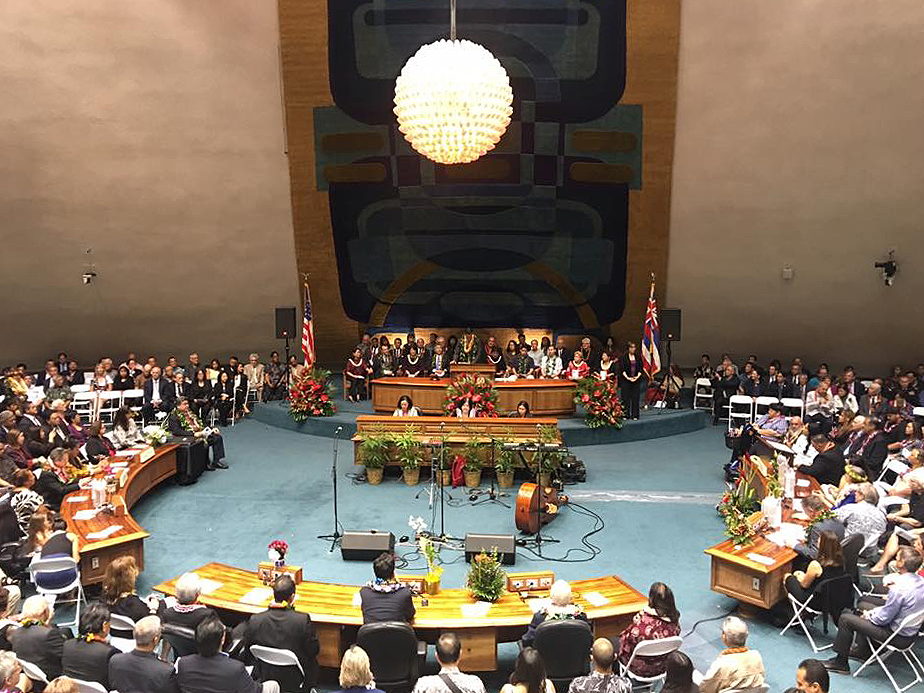When the 30th Hawaii State Legislature convened Wednesday morning, education was on the minds of lawmakers on both sides of the aisle, particularly in relation to Hawaii’s high cost of living.
Lawmakers say one of their goals is to make Hawaii a more affordable place to live, and education plays a significant role.
“We need to create a Hawaii that our children will choose to come back to,” said Senate President Ronald Kouchi (D, Kauai, Niihau), which involves “funding the pre-K programs to start them on the right path to education, the support for K through 12, as well as our community colleges and universities. We need money.”
“Speaking as a proud graduate of public schools, we need to ensure that our children have the best classrooms and facilities to make their education meaningful,” echoed Senate Minority Leader Kurt Fevella (R, Ewa Beach, Ocean Pointe, Ewa by Gentry, Iroquois Point).
The question lawmakers must tackle is how.
“I will let the governor know I stand ready to work with him on finding a bill that will allow us to collect these funds so that we can deliver the money to create the lifestyle or opportunities that our seniors deserve, and to create the opportunities for our children to get the education that they need and that they deserve so that they can compete with anybody in the world,” Kouchi said.
Related Story: Priorities for HSTA's Government Relations Committee in 2019
House Minority Leader Gene Ward (R, Hawaii Kai, Kalama Valley) acknowledged the loss of potential funds from last year’s Constitutional Amendment, which was ruled invalid by the Hawaii Supreme Court prior to November’s general election. The amendment would have asked voters if a surcharge on investment real property should be used to support public education.
“Your Minority Caucus, Mr. Speaker, has compensated in a small way. We have one percent of every CIP (capital improvement project) that goes to public art, but what most of you don’t know is we have six warehouses filled with public art. We want to channel at least half of that money into the classroom,” Ward said. “Some places don’t even have books. They don’t even have computers, and I understand, Mr. Governor, that some of the air conditioning is faltering a bit. So we need some money on that one also. The point is, Mr. Speaker, we need an agenda that helps these people out.”
Another priority, according to Kouchi, is ensuring that no child goes hungry at school. The senator called for further expansion of the state’s farm-to-school efforts.
“It’s my desire to see our children who are going to school have the proper meal so that they can maximize and perform at their best,” he said. “I am aware that many of those students that is often the best or possibly the only meal they will be having that day, so it shouldn’t be something that they want to throw in the trash. It should be something that they enjoy eating, something that will nurture their minds and bodies to have them perform at their optimum levels.”

